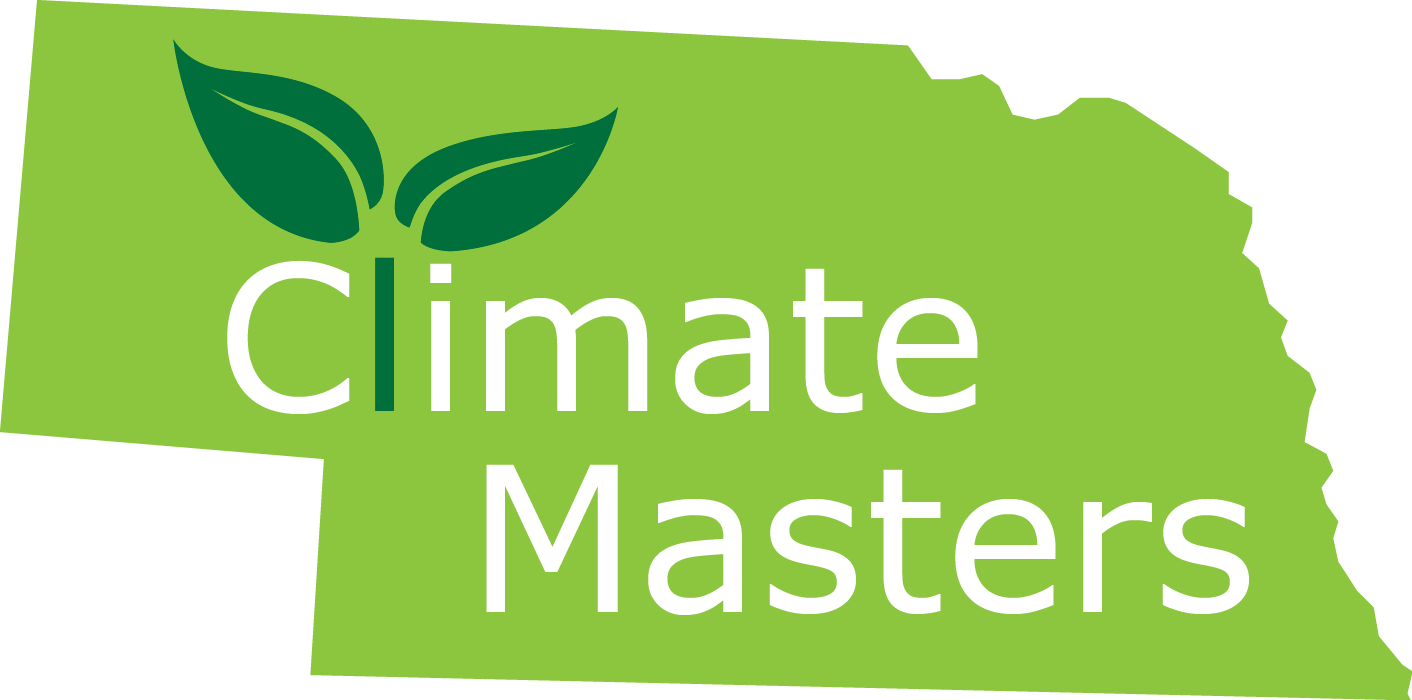
Climate Masters of Nebraska, a program at UNL's School of Natural Resources, will offer its third course for community volunteers starting Jan. 15, 2015. Participants will learn ways to act locally to save money, protect the environment and reduce greenhouse gas emissions.
The project, funded by the Nebraska Department of Environmental Quality, will teach 25 community members various ways that consumers, citizens and homeowners can reduce greenhouse gas emissions. In exchange for the free course, participants provide 30 hours of education to others in the community. They can work with the project team or on their own to develop community education opportunities. Cleaner Greener Lincoln, the mayor's sustainability initiative, is a project partner.
The ten-week Climate Masters course begins Jan. 15, 2015 and meets every Thursday, 6-8:30 p.m. It is also available to UNL students as a credit course (NRES 498-101).
"The course will include a field trip to the Bluff Road Landfill, which is a very complex and interesting operation. We will have expert speakers at most of the classes and a variety of volunteer activities," said Tonya Bernadt, Climate Masters project coordinator.
Classes will focus on the basics of climate change, home energy efficiency, renewable energy, eco-friendly landscaping, consumption and waste, communicating climate change, local foods, water conservation, preparing for climate change and more.
"Anybody can come," said Natalie Umphlett, regional climatologist for the High Plains Regional Climate Center. "You don't have to have a science background."
She added that the class will give participants the knowledge needed to help the environment, but to also save money and adopt healthier habits through practical ways to reduce greenhouse gas emissions in everyday life.
The first two courses had very positive outcomes. Asked whether the course led to changes in their lives to reduce greenhouse gas emissions, 91 percent said "yes."
"I am happy with the diversity of the resources being used to teach this course," said one of the participants. "I believe that can lead to more perspectives and therefore a more realistic approach which can ultimately lead to solutions that can have a lasting impact on our environment."
For more information and registration, please visit the Climate Masters website: http://ClimateMasters.unl.edu or contact Tonya Bernadt at climatemasters@unl.edu.
More details at: http://go.unl.edu/n4ds